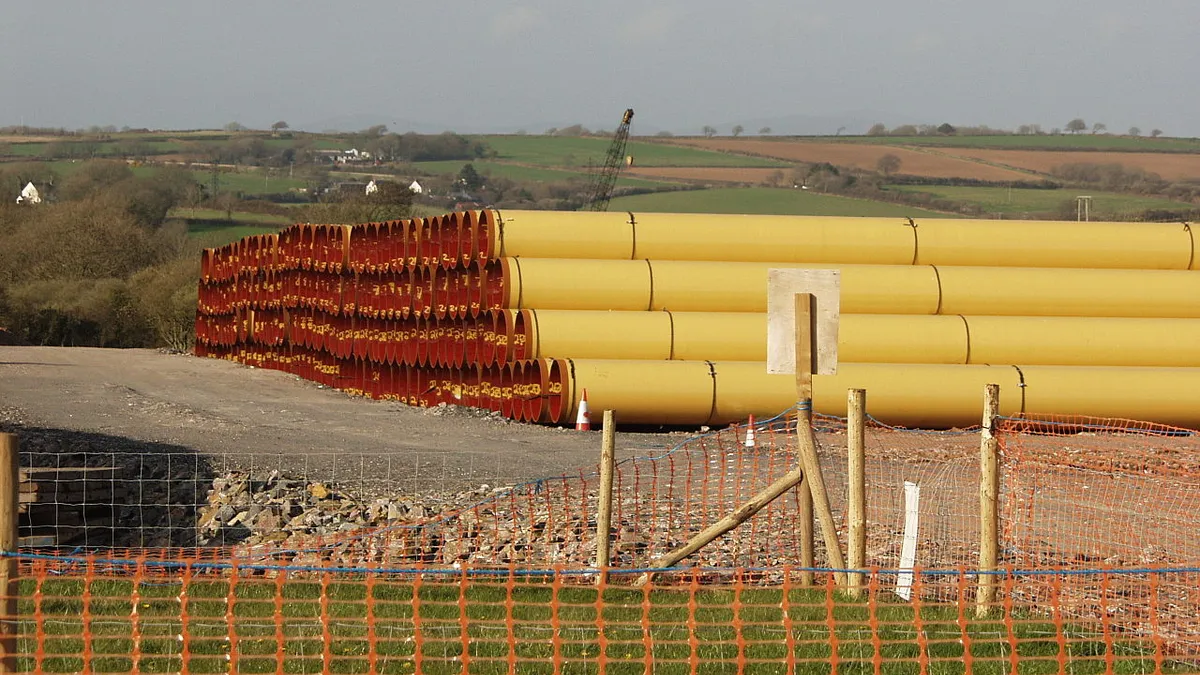Dive Brief:
- Federal Energy Regulatory Commission (FERC) staff granted developers of the Mountain Valley Pipeline (MVP) permission Wednesday to resume work on most of the project, after approving limited construction for the first 77 miles earlier this month.
- At the start of August, FERC issued a stop order on the approximately 300-mile project after the Fourth Circuit Court of Appeals reversed permits granted by the Bureau of Land Management (BLM) and U.S. Forest Service. Additional analysis filed by BLM Friday led FERC staff to modify the stop order to allow construction to resume with a few exemptions.
- Democratic Commissioners Richard Glick and Cheryl LaFleur raised concerns with FERC's response to federal court actions in a joint statement on Wednesday. Although FERC staff "acted within its delegated authority," they believe the commissioners should decide whether and how to proceed with pipeline construction.
Dive Insight:
This latest win for MVP developers and other pipeline construction is part of a broader debate on how FERC's pipeline approval process should weigh market need and environmental impacts.
FERC also halted the 600-mile Atlantic Coast Pipeline project after the Fourth Circuit Court of appeals made a ruling similar to the one that invalidated the MVP permits.
Glick and LaFleur voted against the approval of MVP and other pipelines in the past year. With the departure of Commissioner Robert Powelson, the pair has newfound leverage, as FERC could be tied 2-2 on decisions.
Terry Turpin, director of FERC's Office of Energy Projects (OEP) issued a letter authorizing work to resume on roughly 200 miles of the project, from mileposts 77 and 303, as the route "no longer seems in question."
OEP directors "have been using delegated authority to stop and resume construction" for more than 15 years, FERC Chair Kevin McIntyre tweeted on Wednesday.
"In the case of MVP, BLM confirmed the approved route and I am confident that our federal partners, with whom we are in close consultation, will address any outstanding sedimentation analysis issues for the 3.5-mile crossing on federal land," McIntyre said in another tweet.
Judges had taken issue with the projects crossing national park land, ruling that FERC's construction certificates are invalid since the projects did not have special permitting from federal agencies. MVP has yet to obtain temporary and rights-of-way permits for work on federally owned lands. But the authorization excludes the project's crossing of West Virginia land owned by the U.S. Army Corps of engineers and the Jefferson National Forest in West Virginia and Virginia.
Delaying construction on the cleared land on non-federal lands "would be unnecessary and environmentally irresponsible," McIntyre said yesterday in his final tweet on the subject.















